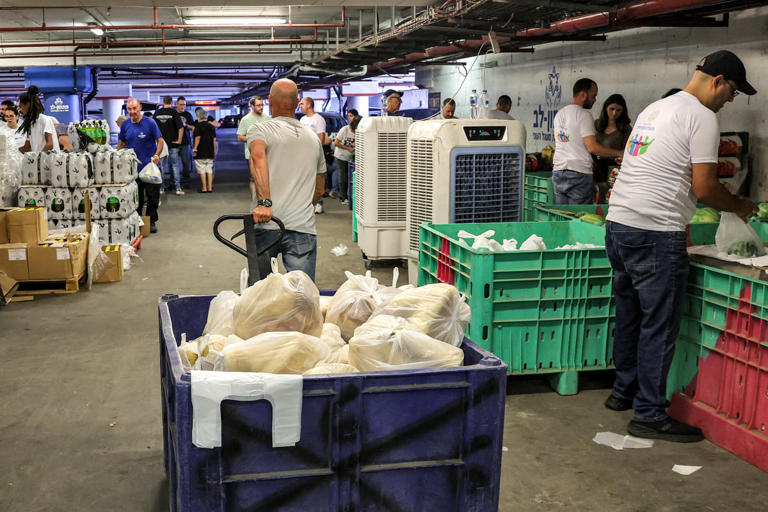RISHON LEZION: The ongoing conflict in Gaza, nearing its one-year mark, has taken a heavy toll on Israel’s economy, extending its impact to communities far beyond the immediate areas of conflict with Hamas.
Even before the war escalated on October 7, the economy had been weakened by mass protests against Prime Minister Benjamin Netanyahu’s judicial reforms. The subsequent Hamas attack, the deadliest in Israel’s history, and the ensuing war, have significantly strained the economy.
According to economist Jacques Bendelac, while Israel’s economy remains fundamentally robust, the prolonged conflict could potentially lead to a recession. Following a 21% contraction in the final quarter of 2023, Israel’s GDP recovered by 14% in early 2024. However, growth slowed dramatically to just 0.7% in the second quarter. As a result, the three major credit rating agencies have downgraded Israel’s debt.
Fitch warned in August that the conflict in Gaza, already the longest since the 1948 Arab-Israeli war, could extend into 2025, with the risk of further escalation along Israel’s northern border, where Hezbollah, a Hamas ally, has engaged Israeli forces.
Prime Minister Netanyahu has asserted that the economy is stable and will recover once the war concludes. Yet, key economic sectors such as tourism, construction, and agriculture are experiencing severe downturns, according to Bendelac, a professor emeritus at the Hebrew University of Jerusalem.
Labor Shortages and Economic Stagnation
The situation worsened after Israel halted work permits for Palestinians in response to the October 7 attack, leading to significant labor shortages. Before the conflict, around 100,000 Palestinians contributed to Israel’s workforce in construction, agriculture, and industry, with tens of thousands working without permits. Now, only 8,000 Palestinian workers are allowed to work in essential sectors.
Mounting Economic Challenges
The war has caused a steep decline in tourism, with visitor numbers dropping to a quarter of what they were in the first half of the previous year. Many construction projects in economic hubs like Tel Aviv have stalled, leaving skyscrapers and transport infrastructure unfinished.
As a result, poverty is rising, and humanitarian organizations report increased demand for assistance. Pitchon-Lev, an NGO providing food to those in need, has more than doubled its efforts, serving nearly 200,000 families, including many who were formerly donors or have been displaced by the conflict.
Uncertain Recovery
Economist Bendelac warns that although the economy typically rebounds strongly after conflicts, the longer the war drags on, the more difficult and slow the recovery process will be.
The impact of the conflict is evident in the lives of individuals like Hilik Wald, a 47-year-old former tour guide in Jerusalem. With tourism at a standstill, he has had to take up part-time work at a train station information desk, earning far less than his previous income. He hopes for an end to the war, like many others whose livelihoods have been upended.

